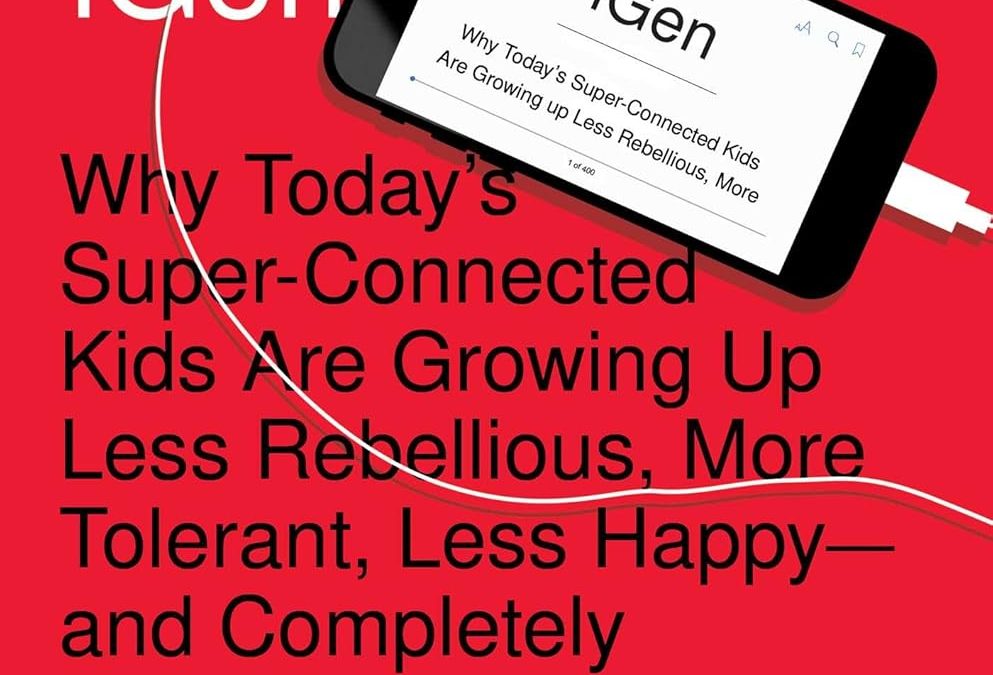Jean M. Twenge’s iGen is a fascinating and data-driven exploration of the generation born between 1995 and 2012. The book’s central thesis is that the smartphone is more than just a device; it is the defining force that has radically shaped the behaviors, attitudes, and life experiences of this cohort, setting them apart from any generation that came before.
The book’s title, iGen (though many now know them as Gen Z), is a deliberate nod to the individualism of the iPhone and the internet-saturated world these children have never known without. Twenge, a psychologist and generational researcher, doesn’t rely on anecdotal evidence. Instead, she builds her case on a massive foundation of large-scale, decades-long surveys, tracking stark trends that coincide perfectly with the widespread adoption of the smartphone around 2012.
The Super-Connected, Yet Less Happy, Teen
Twenge presents a portrait of a generation that is physically safer, more cautious, and slower to embrace the traditional milestones of adulthood. iGen teens are less likely to drink, have sex, get their driver’s license, or go out without their parents compared to Millennials and Gen Xers at the same age. On the surface, this seems positive. However, Twenge links this retreat from independent, in-person socializing to a parallel rise in mental health challenges.
Her most compelling and concerning data shows a dramatic spike in feelings of loneliness, depression, and anxiety. She argues that while iGen is constantly “connected” through social media and texting, they are profoundly isolated from the deep, unstructured, and sometimes challenging interactions that happen face-to-face. The constant cycle of online comparison and the pressure of a perpetual online persona are presented as key contributors to their distress.
A Generation of Tolerance and Realism
It’s not all a negative picture. Twenge highlights iGen’s remarkable progressivism and tolerance as a major strength. Having grown up with the internet, they are exposed to a diversity of ideas and identities from a young age, making them more accepting of difference in race, gender, and sexual orientation. They are also portrayed as pragmatic and realistic, keenly aware of economic uncertainties and more focused on security and practical outcomes than their idealistic Millennial predecessors.
“Completely Unprepared for Adulthood”
The book’s most provocative claim is in its subtitle. Twenge argues that by delaying adult activities and spending less time working, dating, and socializing independently, iGen members are arriving at college and the workplace with less practical life experience and resilience. This, combined with their heightened anxiety, can make the transition to adulthood particularly jarring.
final thought
iGen is a thought-provoking and essential read for parents, educators, employers, and anyone who wants to understand the young people shaping our future. While some critics argue that Twenge’s correlation between smartphones and psychological decline is too simplistic, the sheer weight of her data is undeniable and demands attention.
The book is not a condemnation of a generation but a stark warning about the unintended consequences of a technology-first childhood. It ultimately serves as a call to action: to encourage more balance, to foster real-world connection, and to better equip this unique, cautious, and often anxious generation with the tools they need to navigate the world beyond their screens.
